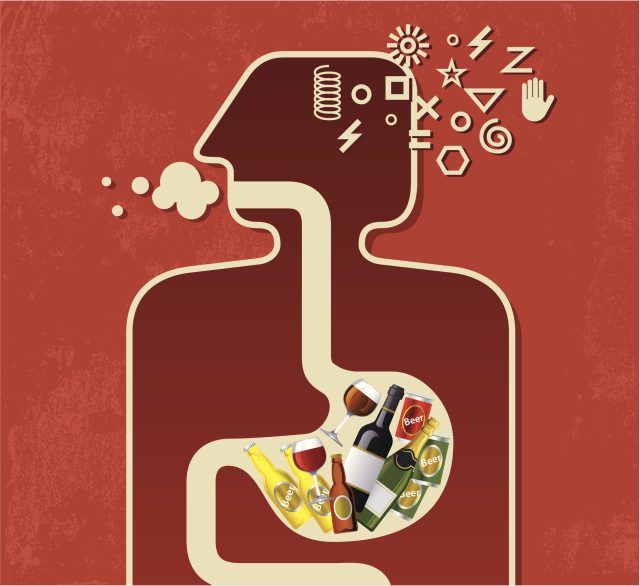This website uses cookies so that we can provide you with the best user experience possible. Cookie information is stored in your browser and performs functions such as recognising you when you return to our website and helping our team to understand which sections of the website you find most interesting and useful.
The way alcohol affects gut health
What alcohol does to the microbes living in your gut is being re-explored by scientists and physicians.

In a report shared via The New York Times, it was outlined that like with much of microbiome science, “there is a lot that we don’t know,” said Dr Lorenzo Leggio, a physician-scientist who studies alcohol use and addiction at the US National Institutes of Health.
Until now, most of the research on alcohol and the microbiome has focused on people who drink regularly and heavily, explained Dr Cynthia Hsu, a gastroenterologist at the University of California, San Diego.
However, Hsu explained that we already know that people with alcohol use disorder often have an imbalance of ‘good’ and ‘bad’ bacteria in their gut [a condition called dysbiosis] which is often associated with inflammation. Plus, according to Leggio, heavy drinkers with dysbiosis can also have “leakier,” or more permeable, intestinal linings. With this in mind, Leggio highlighted that this means “a healthy gut lining acts as a barrier between the interior of the intestine and the rest of the body.”
But, Hsu added: “When the gut lining breaks down, bacteria and toxins can escape into the bloodstream and flow to the liver, where they can cause liver inflammation and damage.”
According to Dr Jasmohan Bajaj, a hepatologist at Virginia Commonwealth University and the Richmond VA Medical Centre, early research suggests that an unhealthy gut might even contribute to alcohol cravings.
For example, in a 2023 study, researchers assessed the microbiomes of 71 people ages 18 to 25 who did not have alcohol use disorder. Those who reported more frequent binge-drinking (defined as four or more drinks within about two hours for women, or five or more drinks for men) had microbiome changes that correlated with “greater alcohol cravings”.
The available research on how minimal alcohol consumption affects your gut microbiome is scarce said Jennifer Barb, a clinical bioinformatics scientist at the National Institutes of Health.
However, scientists have now found that compared with those who don’t drink at all, people who drink at low-to-moderate levels have more diverse gut microbiomes – a characteristic generally associated with a healthy gut.
Although Barb explained that this could be attributed to other diet or lifestyle factors, it could also identify that something in alcoholic drinks might benefit the microbiome – though it’s likely not the ethanol.
In a 2020 study of 916 women in Britain who consumed two or fewer drinks per day, researchers discovered that those who drank red wine – or to a lesser extent, white wine – had greater gut microbial diversity than those who did not.
Following this, the researchers hypothesised that polyphenols, compounds found in grape skins that are in high concentrations in red wines, might explain the results.
However, John Cryan, a neuroscientist who studies the microbiome at University College Cork in Ireland, pointed out that “you don’t need alcohol to find polyphenols [because] they are also in grapes and most other fruits and vegetables, as well as many herbs, coffee and tea.
According to reports, researchers also looked at the microbiomes of people who have been treated for alcohol use disorder and found that within two to three weeks after the people stopped drinking, their gut microbes started to show signs of recovery.
Barb revealed: “Their gut linings became less ‘leaky’” but reminded that “people who get treated for alcohol use disorder also usually start to eat more healthily and sleep better, which can improve gut health, too”.
Leggio added that “it is still not clear how – or even if – quitting or cutting back on alcohol might influence the microbiomes of moderate drinkers” but added that researchers “do know that alcohol can cause acid reflux, stomach lining inflammation and gastrointestinal bleeding” so “there is no question whatsoever that drinking less is a worthwhile endeavour for your health”.

